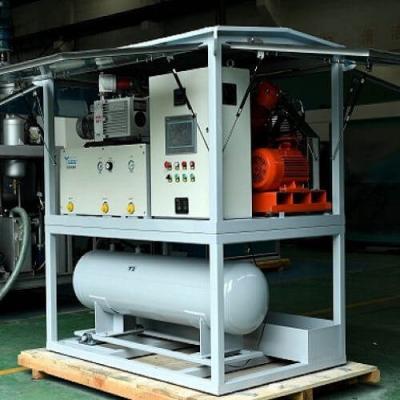Categories
Tags
-
#Waste Oil to Base Oil Plant
#Well Control Simulators
#HFO Visbreaking
#Transformer Oil BDV Tester
#VR Emergency Training Simulator
#SF6 Gas Purification Machine
#Laser Cleaning
#Automatic Laser Welder
#Benchtop Pneumatic Dot Peen Markers
#Oil Well Work
#Portable Well Control Simulators
#well logging
#Petroleum Engineering
#virtual reality emergency training simulator
#Well Control Simulator
#Waste Oil to Base Oil Plants
#Portable Simulator
#Web Guide Systems
#Floating Rig
#Turbine Oil Filtration
#Land Rig Installation
#Clothes Drop Boxe
#Industrial Garbage Compactor
#Magnetic Powder Brakes
Archives
How SF6 Gas Purification Machines Revolutionize Sustainability
-
Sustainability is no longer a buzzword; it's a necessity. With the global push to reduce greenhouse gas emissions, industries are under increasing pressure to adopt eco-friendly practices. SF6 Gas Purification Machines are a game-changer in this regard, turning a potential environmental hazard into a sustainable resource.
The Environmental Challenge of SF6 Gas
SF6 gas is known for its high dielectric strength and excellent insulating properties, making it indispensable in the energy and power sectors. However, its environmental downside is significant: SF6 is one of the most potent greenhouse gases, with a global warming potential thousands of times greater than CO2. Without proper handling, its environmental impact can be severe.
The Solution: SF6 Gas Purification Machines
These machines are designed to purify and reclaim SF6 gas, ensuring its safe reuse while minimizing environmental impact. Here’s how they are driving sustainability:
Reduction of Waste: By purifying and recycling SF6 gas, these machines prevent the need for disposal, which can release harmful gases into the atmosphere.
Minimizing Carbon Footprint: Each kilogram of SF6 gas saved through purification prevents significant greenhouse gas emissions.
Support for Circular Economy: SF6 Gas Purification Machines embody the principles of a circular economy by keeping resources in use for as long as possible.
Industrial Benefits Beyond Sustainability
Cost Savings: Reclaiming SF6 gas reduces the cost of purchasing new supplies, offering significant financial benefits over time.
Improved Operational Efficiency: Purified SF6 gas enhances the performance of critical equipment, reducing downtime and maintenance needs.
Regulatory Compliance: These machines help industries comply with stringent environmental laws, avoiding fines and boosting their corporate image.
Future Trends in SF6 Gas Management
As technology advances, we can expect further innovations in SF6 gas purification. From AI-driven monitoring systems to more compact designs, these machines will continue to evolve, offering enhanced capabilities and efficiency.
In conclusion, SF6 Gas Purification Machines are not just a technological advancement; they are a necessity in the modern industrial landscape. By adopting these machines, industries can align with global sustainability goals while achieving operational excellence.
